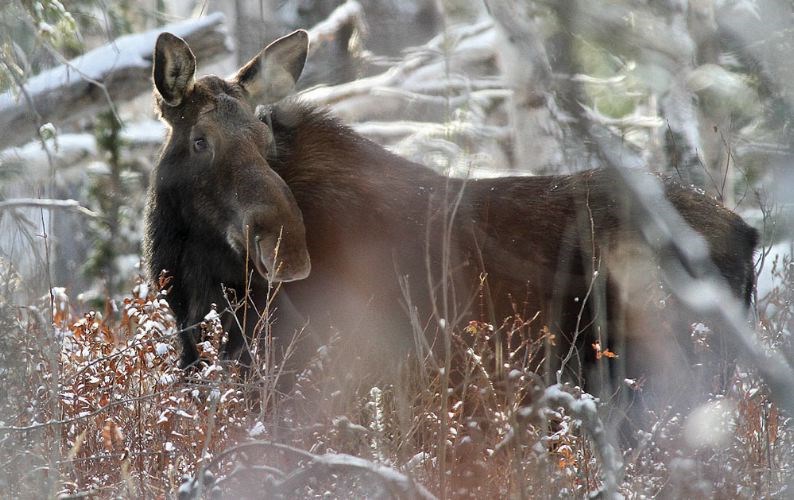Think twice before you feed that moose or deer.
That's the message from the Ministry of Forests, Lands, Natural Resource Operations and Rural Development for people who want to help wildlife make it through what at times has been a harsh winter.
With the deep freeze taking hold over the holiday season, the ministry recently sent out a cautionary note about giving hay, pellets or grain to ungulates - hooved mammals like elk, moose, deer and sheep - to make up for the loss of forage out in the wild.
"Decades of scientific research have shown that winter feeding programs can have serious negative consequences for ungulates," the ministry said.
"Ungulates, as ruminants, have food requirements that vary seasonally. It takes weeks for the bacteria in their digestive tract to adapt to changes in diet. A sudden shift from natural winter forage to supplemental feed can result in sickness or death."
Other risks include increased conflicts with communities, damage to important winter habitat and higher risk of parasite and disease transmission. In addition, high densities of ungulates at feeding sites attract predators, which can increase ungulate mortality and human-predator conflicts.
A better approach is to protect and enhance natural habitats and avoid disturbing the animals during the winter.
"Animals that enter the winter in good condition, due to abundant summer and autumn forage, are more likely to survive a severe winter," the ministry said. "Even in well-functioning ecosystems, some animals die during winter. This is natural and keeps ungulate populations in balance with their available habitat."



